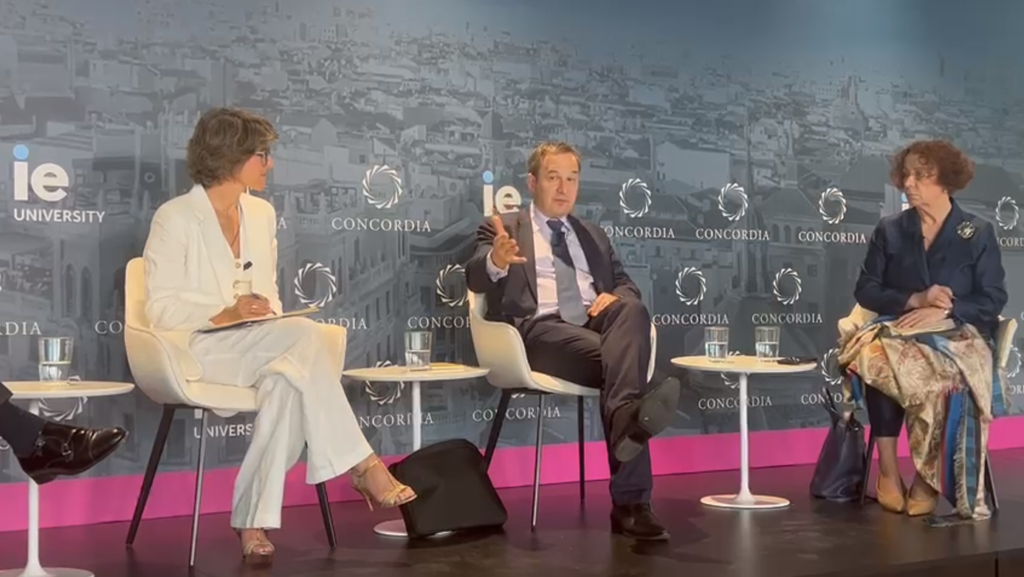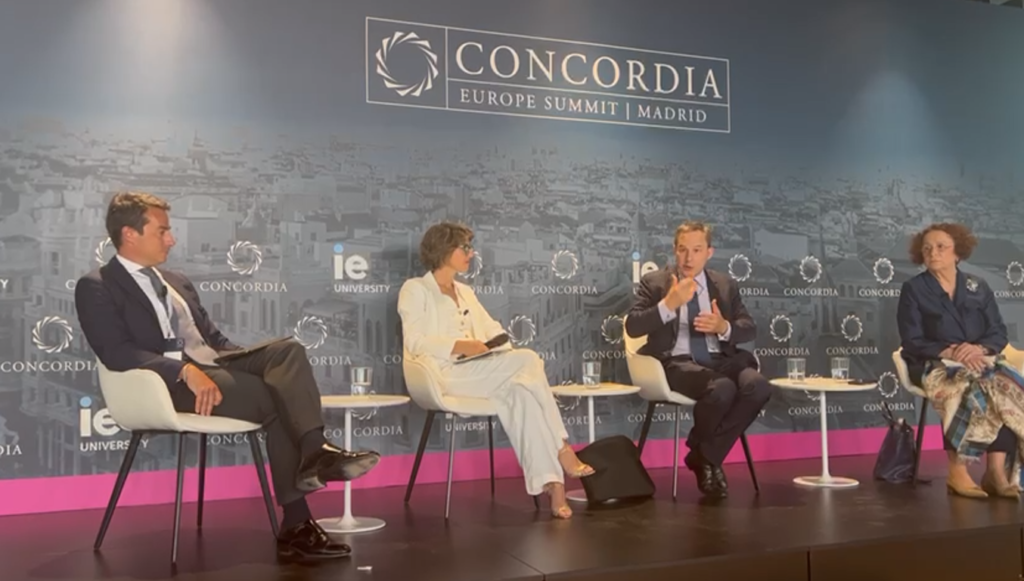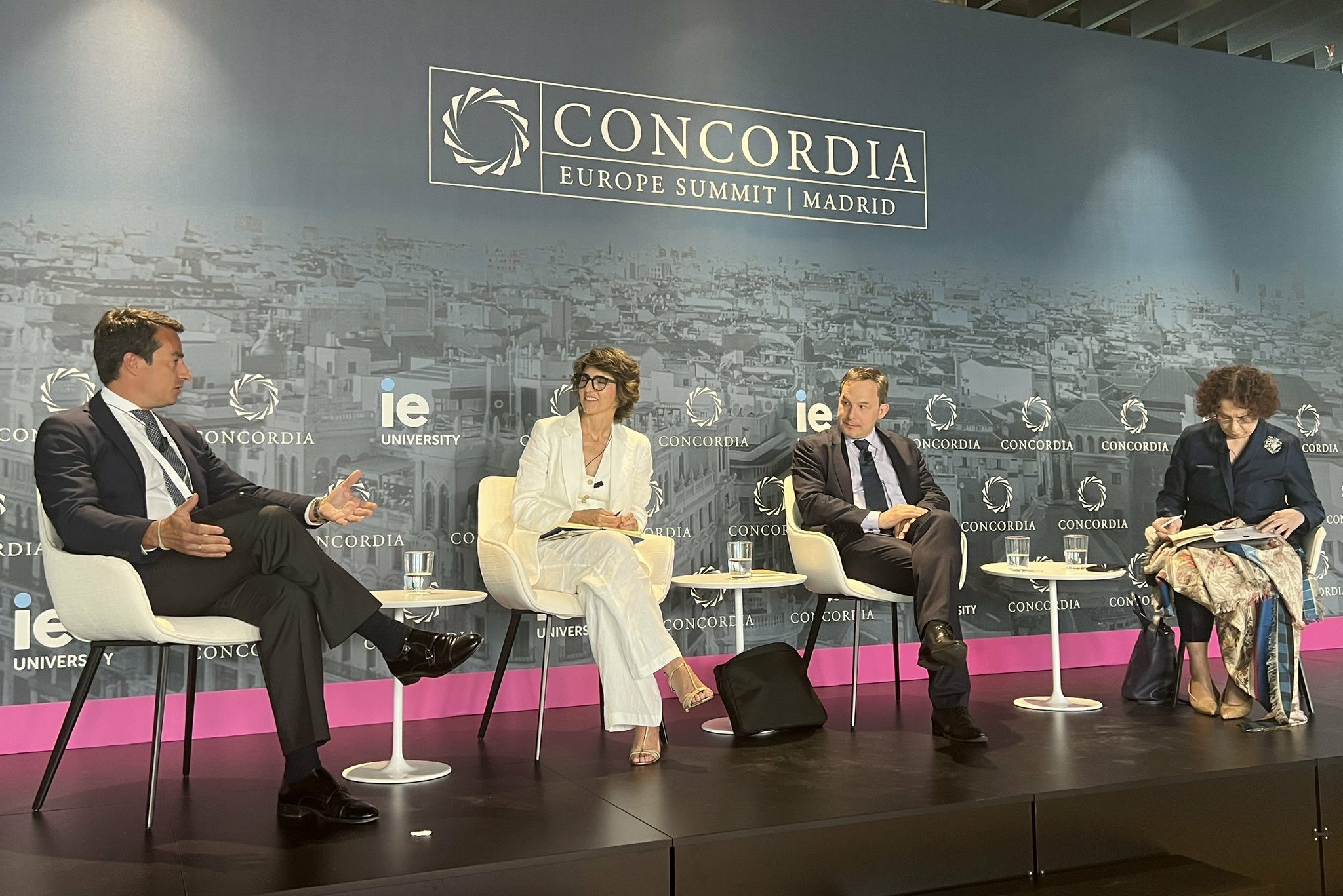As Europe grapples with high energy prices and disruptions in its energy supply following Russia’s invasion of Ukraine, working towards Europe’s energy transition has never been more pressing – but also full of new opportunities. At Concordia’s 2023 Europe Summit in Madrid, Spain, our board member Raphael Schoentgen, Founder & CEO, Hydrogen Advisors, took part in a panel discussion on “Europe’s Energy Landscape: Alternatives for the Renewable Transition.”
Alongside him on the stage to discuss this question were Ana Palacio, Former Minister of Foreign Affairs, Spain, Teresa Parejo, Director of Sustainability, Iberia Airlines, and German Alcayde, Board Member, HVR energy, who moderated the session.
Europe’s changing energy landscape
Drawing on his extensive experience in the energy sector, having previously been CTO & Executive Committee Member of ENGIE and now an expert and entrepreneur in the field of hydrogen, Raphael Schoentgen set the stage for the discussion by recalling that 80% of the energy used today in Europe is either solid, liquid, or gas. The energy transition should therefore not focus solely on electricity. Today, renewable energy sources represent 40% of Europe’s power grid. However, electricity accounts for only 20% of the energy we consume – making renewable energies only 8% of the total power consumption. Europe still imports 85% of its energy (including fuel). It will thus not be self-sufficient from one day to the other, Mr Schoentgen argued.
The largest energy need in Europe is heating, with 40% of the total consumption. This is mainly provided through gas. Then comes transport with 30%, which is mainly provided in liquid form. Mr Schoentgen therefore expressed his belief in the potential of hydrogen, as it provides both a good complement to green power and a substitute to natural gas, which can reinforce the production of biogas.
Encouraging development and adapting to a changing international environment
Raphael Schoentgen however issued a warning about imposing restrictions on the development of hydrogen in Europe, calling for decision makers to be concrete and non-dogmatic. The European Commission’s Delegated Act is for example making the development of hydrogen very complicated, as the focus on zero-CO2 and greenhouse gas emissions is too high.
Putting Europe’s efforts in comparison with international energy trajectories, Ana Palacio shared her analysis of the state of play in the United States. The Inflation Reduction Act of 2022 (IRA), signed into law in August 2022, contains $500 billion in new spending and tax breaks aiming – among other priorities – to boost clean energy. Ana Palacio noted that while the IRA was technology neutral, the European Green Deal did not display this technology neutrality as it rejected nuclear energy. This was confirmed by Raphael Schoentgen who only recently returned from Washington D.C., where he attended the release of the US hydrogen strategy.
Coming back to Europe’s energy imports, Ana Palacio highlighted Spain’s efforts not to make itself dependent on one country (as opposed to Germany’s dependence on Russian gas). Instead, Spain built a flotilla of energy terminals to remain relatively independent.



